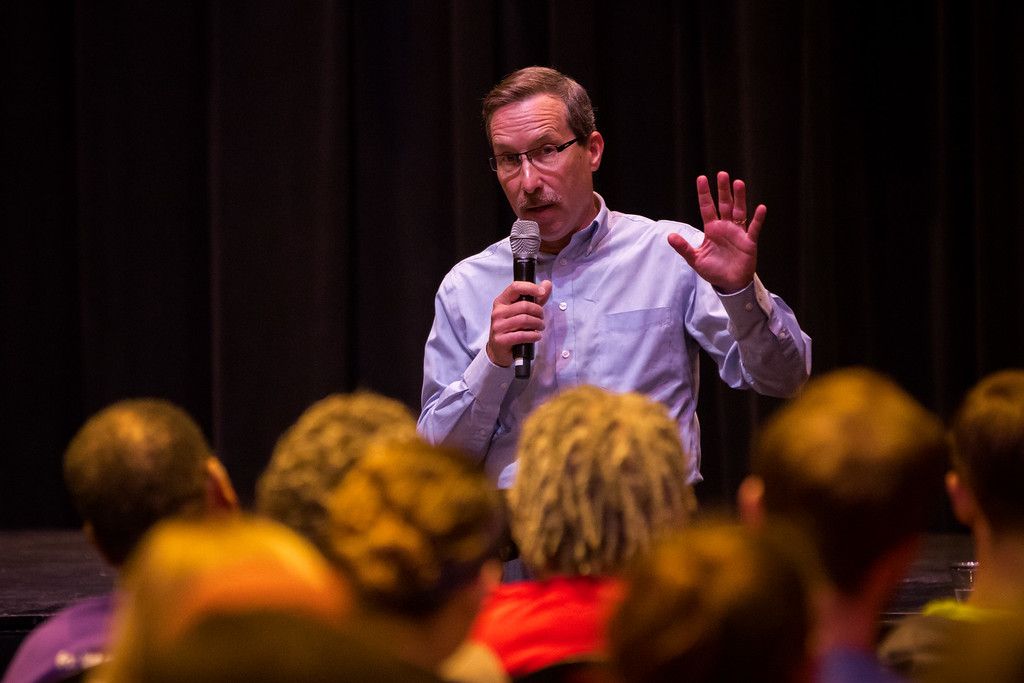by Bruce T. Gourley
Published August 2015
(Baptist Studies Bulletin Archives Index)

“Atheist,” “agnostic,” or “nothing in particular.” Approximately one in our Americans — and one in three millennials — thus describe their religious beliefs, a percentage that is rapidly growing.
At the same time, the results of a theological survey conducted by an organization headed by conservative evangelist R. C. Sproul, and touted by LifeWay of the Southern Baptist Convention, are thus summarized: “Our culture is anti-theological — we are in a new dark age.”
Perhaps Sproul and his colleagues are unaware that during the period colloquially known as the “Dark Ages” the Church was heralded as the “Queen of the sciences.” During that era in the Western world the various areas of knowledge (“science,” but not scientific in nature, philosophy being a prime example) were considered to exist for the furtherance of theology and the exaltation of God.
Although once considered the pinnacle of knowledge, theology in the 21st century Western world is disintegrating as escalating scientific knowledge based on massive empirical data peels back the intricate layers of the fundamental nature of reality.
While yet firmly ensconced within many religious communities, theology has no currency in the larger world of empirical truth. The Western world, in short, is rapidly moving beyond theology.
Astrophysicist Charles Liu summarizes the displacement and irrelevance of theology in an empirical world: “People ask, ‘Well, what do you think? [as to whether God exists]’ And what I say is, ‘I don’t know.’ I think that the universe is beautiful, complex and fascinating. And I have not seen any evidence to show that an omniscient or divine being has to exist in order for the universe to be the way it is. But there’s nothing to say that it can’t exist, either.”
Also contributing to the so-called “dark age” of theology is an acute awareness of the historical dark side of theology: the fettering of human conscience and human rights in order to preserve dogma and doctrine, the divisive nature of religious creeds, the horrors of unions of religion and state, tens of millions enslaved in the name of the divine, untold hundreds of millions of lives snuffed out in religious wars or simply because they dissented from orthodox theologies.
From within Christendom the never-ending litany of evils committed in the name of the Christian God are often apologized for, explained away, or otherwise neutralized. Yet on the outside, divine-attributed evils (whether Christian, Muslim, Jewish or otherwise) garner little understanding, much less forgiveness.
Setting aside the dark side of the divine, in the modern scientific, empirical, historically-informed narrative of the nature of reality — the world of the one-fourth or so of Americans who are atheist, agnostic or “nothing in particular” — theology is at best idle speculation. Unlike at least some religiously-active Christians, Muslims, Jews or persons of other faiths, “thinking about God” (to use Baptist theologian Fisher Humphreys’ definition of theology) or the divine is, for the non-religious, ultimately a pointless exercise. Then again, widespread are the laments in Christendom that little theology is done within church communities.
Without and within faith communities, the widespread disintegration of theological thought, identified by Sproul and others, poses an existential challenge to 21st century Western Christianity.
Amid the erosion of the credibility of theology, how can institutional Christianity remain viable?
An emerging answer to this dilemma lies within the realm of human experience, a middle road between unverifiable religious belief (theology) and empirical knowledge (the world of science).
Early Baptists pointed to this middle road some four centuries ago. Prior to the Enlightenment, Baptists were birthed as liberators of the human conscious. In the early days of the scientific revolution, Baptists elevated human experience above theology in the pursuit of God. A personal experience with the divine was the sole universal requirement for membership in Baptist communities. Doctrine was optional: Calvinists, Arminians, Trinitarians, non-Trinitarians, and any manner of doctrinal constructs otherwise — all were welcome in the diverse Baptist family.
Fast-forwarding to the present, the centrality of experiential faith and lack of theological exclusivism are recurring themes in a series of reflections this year composed by young Baptist ministers to explain “Why I Am a CBF Baptist.”
Kristopher Aaron of Deer Park Baptist Church (Louisville, Kentucky) cites the “theological diversity” and “theological freedom” of Cooperative Baptist Fellowship life. Heather Burke of FBC Conway, South Carolina, points to the sharing of “experiences and vision” as more important than doctrine. Kyle Caudle of FBC Winston-Salem, North Carolina, says that “relationships-friendships-are the lifeblood” of CBF, not theological “beliefs.” Kyle Tubbs of Grace Baptist Church (Round Rock, Texas) is appreciative of the freedoms, diversity, relationships and friendships that collectively define the community that is CBF. Emily Holladay of Broadway Baptist Church in Winston-Salem, Julie Whidden Long of the First Baptist Church of Christ in Macon, Georgia, and Aaron Weaver, communications manager for Cooperative Baptist Fellowship, all highlight the influence of family, personal experience, and CBF’s commitment to historic Baptist freedoms. And this month Tara Brooks, a student at McAfee School of Theology and campus minister, shares her experiential journey in CBF life.
The witness of the earliest Baptists, as well as the voices of many of today’s young Baptists, collectively offer insight into a broader Western world in which fewer and fewer people are focused on matters of theology, while more and more find existential value and meaning in personal experience, diversity, freedom, advocacy, friendships and relationships.
In the present “dark age” of theology, the Cooperative Baptist Fellowship, an experientially-oriented community of faith in action, offers a transcendent witness of hope in an empirical world.
